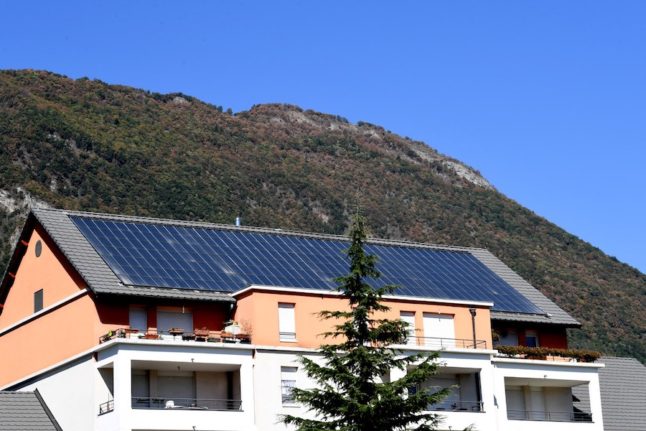France has several grants that help households with the cost of property renovations which make them more energy efficient, such as replacing the boiler, adding insulation or installing new windows.
However, with the growing popularity of the energy renovation grants, some bad actors have tried to take advantage of the situation with scams and fraud.
If you think you have been the victim of a scam – or you believe you were contacted by a scam company or organisation – you can report it to the French government online on the France-Renov website.
READ MORE: What to do if you have fallen victim to a scam in France
Here are some common scams and how to avoid them, according to the French government;
Canvassing and phishing
If you receive a phone call, email or SMS from someone claiming to be from the ANAH (Agence nationale de l’habitat – national housing agency), beware that this is likely a scam. French government bodies do not canvass, and it is illegal for a company to claim to be from ANAH or any other public body.
How should I deal with this? If you are getting repeated phone calls offering energy renovation grants, consider blocking the number. French law prohibits any telephone canvassing within the energy renovation sector – you can report the number by contacting France Rénov’ at 0 808 800 700.
If someone comes to your door offering energy renovation work, be sure not to sign anything. You can take information from them, but do not agree to any of their services or give any personal information. If you did sign a contract after door-to-door canvassing, you legally have the ‘right of withdrawal’ (droit à la rétractation) for 14 days afterwards.
As for the internet – beware of leaving any personal details or your tax ID number on renovation websites. It is possible for malicious third parties to attempt to apply for state aid in your place, if they get your information. Only put your personal information into official government websites – these should end with ‘.gouv.fr’.
Keep in mind that companies are also not allowed to make government accounts on your behalf. Additionally, some companies might make themselves seem as if they are commissioned by or connected to the French government/ your energy provider – this is uncommon and could be a red flag.
READ MORE: Warning: 6 of the most common scams in France to watch out for
Hidden loans and fees
Some groups have been running this scam. Basically, if you are given a lot of paperwork to sign, they assume you will not read all of the documents and they will hide a loan or additional charges.
How should I deal with this? Before signing anything, be sure to read every page. If the paperwork has any mention of a banking organisation, be vigilant.
If you are taking out a loan, take the time to read the credit offer, which must be provided by a banking organisation. Be careful about deferring repayment for the first instalments – this might seem appealing, but in the end it will significantly increase the total cost of the loan.
Pay particular attention to the completion certificate (l’attestation de fin de travaux), which confirms that the work has been carried out to the required standard and marks the start of your repayment obligations. Do not sign the certificate of completion until the work is fully completed.
Fake quality labels and certificates
When benefitting from an energy renovation grant, the company or provider should have an ‘environment guarantee’ (RGE) label. Some scams have involved falsifying this certification.
How should I deal with this? You can verify whether or not the professional has an RGE label by using the list of accredited businesses on the France Rénov website.
Even if the company has the required documentation, you should still compare different offers and read contracts thoroughly, as well as googling them to read any existing reviews.
READ MORE: GUIDE: French property grants you might be eligible for
Other steps to avoid scams
- Avoid sharing personal and banking information, especially after canvassing.
- If the bill or estimate (dévis) is incomprehensible or does not line up with previous discussions or documents, consider going with a different company.
- Verify the company using the France Rénov site, and remember that just because the company is certified does not mean they are entirely trustworthy. Be sure to read all of the documents thoroughly. Check, for example, that the equipment to be installed corresponds to the initial estimate.
- Work alongside an adviser from France Rénov. You must first make an account on the government site, then you can find an adviser near you.
- Compare several different companies and prices, do not take the first one.
- Beware of offers that are too attractive (you may not be eligible for the aid announced and actual energy savings may be lower than promised)
- Know how much aid you would be entitled to – you can estimate this using the simulator tool, available on the France Rénov’ platform.
What if the work has not gone as planned?
You can take recourse if there is a dispute with the company over the work provided.
Assuming you are working with an RGE-certified company, you can report the issue directly on the France-Renov website.
You can also get assistance from an accredited consumer protection association, who will be able to offer you advice. You can find the government list here.
You can also contact a legal representative (un conciliateur de justice) if necessary.



 Please whitelist us to continue reading.
Please whitelist us to continue reading.
Member comments